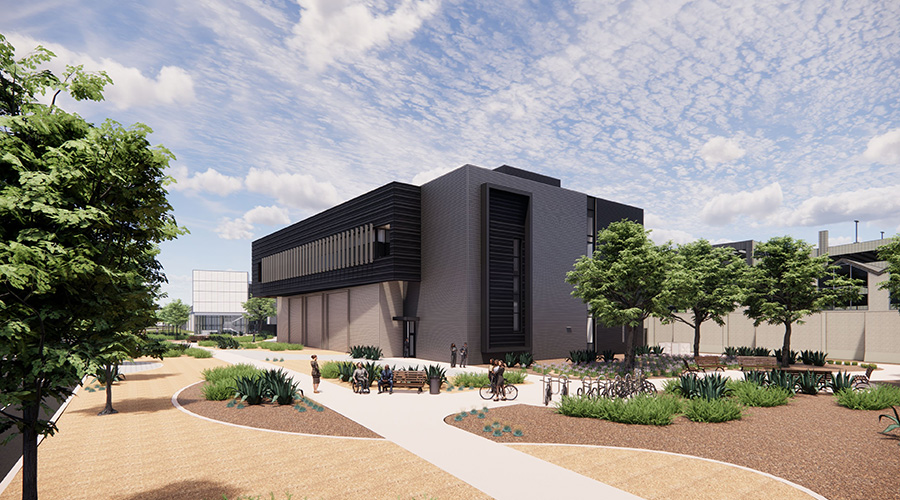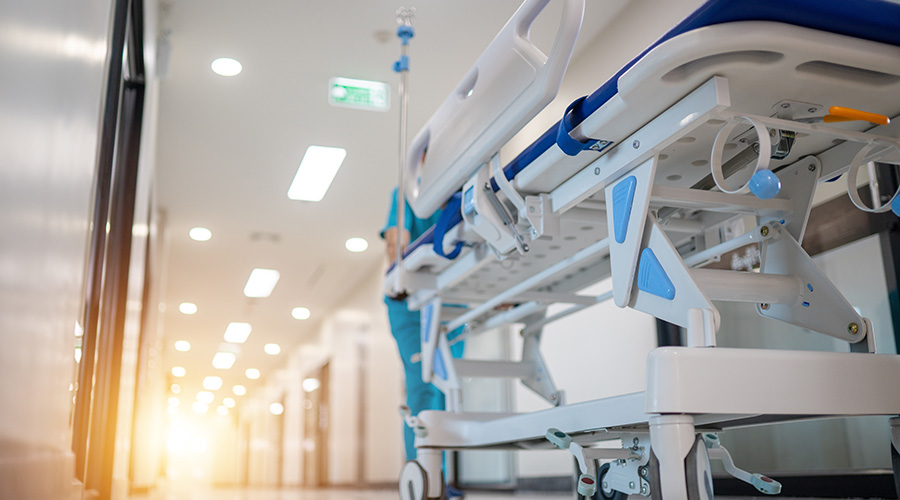A new model by Array Analytics projects the potential increase in bed capacity if heath systems leverage Ambulatory Surgery Centers (ASCs) to boost bed availability. Breaking down potential ASC Surge Capacity within each Hospital Referral Region (HRR) and state, the model projects that employing ASCs will increase the national potential ICU bed supply by 21 percent and med-surg bed supply by eight percent.
Healthcare strategists have proposed using ASCs to house non-COVID-19 cases, increase overall bed availability in hospitals, or designate pure COVID-19 treatment hospitals. Array Analytics’ analyses reveal that while ASCs can provide additional capacity for the healthcare system, they only afford a few days’ additional capacity in most markets. It estimates the number of ICU and med-surg bed equivalents available at ASCs based on the number of operating rooms, anesthesia machines and the prevalence of phase one and phase two recovery bays.
“Our analyses show that the roughly 900,000 hospital and ICU beds available in the US, numbers that include the ASCs, are simply not sufficient to meet the potential need for space,” said Fady Barmada, Array Analytics President and Co-Founder. “Our new, publicly available surge capacity alternative space model presents additional paths that healthcare systems can take to increase bed availability.”
"As officials struggle with adding bed capacity to treat COVID-19 patients, it's critical for them to be able to accurately assess the bed shortfalls in their market, as well as the possible options for adding emergency beds at their disposal,” said Kyle Rose, Senior Vice President at Optum Analytics. “Pivotal's unique, market-specific supply and demand data make this emergency bed modeling possible."
The surge capacity alternative space model builds on CMS data, Pivotal data, and Array Advisors’ ICU bed demand model that projects ICU bed capacity against local and national supply. The ICU model’s latest projections (not yet published) underscore the urgent need for solutions that expand hospital capacity.
Health systems will use a prioritized response as they choose overflow strategies. First, health systems will take immediate measures to increase capacity at each hospital facility, such as those Array Advisors proposes in their surge capacity planning tool. However, even with hospital capacity optimized, it is projected that space requirements will quickly outweigh available resources. Second, health systems will evaluate the use of ASCs, which already house the space, personnel and equipment needed for COVID-19 treatment or for the treatment of non-COVID-19, non-elective patients. Third, health systems will assess alternative locations, such as hotels, convention centers and vacant large retail spaces.
Array Analytics has included hospitality supply by state and HHR in their model, with information provided by STR. Hotels offer robust technology platforms, proximity to densely populated areas and a planning and space model that make them ideal for either isolating mildly ill people who have been diagnosed with COVID-19, or housing those who have been exposed and should be quarantined.
Recent changes in telehealth delivery and reimbursement regulations remove some barriers to deploying healthcare infrastructures broadly in unconventional healthcare spaces. Telemedicine could potentially be used to provide care if it buttressed by onsite support for patients that become critical (five percent of total cases) and robust transfer protocols.
The healthcare industry needs innovative solutions to battle the unprecedented coronavirus pandemic. Array Advisors, Array Analytics, and Array Architects will continue to provide ideas, design, and data-informed tools to help support their clients on the front lines of caring for our nation.
 Grounding Healthcare Spaces in Hospitality Principles
Grounding Healthcare Spaces in Hospitality Principles UC Davis Health Selects Rudolph and Sletten for Central Utility Plant Expansion
UC Davis Health Selects Rudolph and Sletten for Central Utility Plant Expansion Cape Cod Healthcare Opens Upper 2 Floors of Edwin Barbey Patient Care Pavilion
Cape Cod Healthcare Opens Upper 2 Floors of Edwin Barbey Patient Care Pavilion Building Sustainable Healthcare for an Aging Population
Building Sustainable Healthcare for an Aging Population Froedtert ThedaCare Announces Opening of ThedaCare Medical Center-Oshkosh
Froedtert ThedaCare Announces Opening of ThedaCare Medical Center-Oshkosh